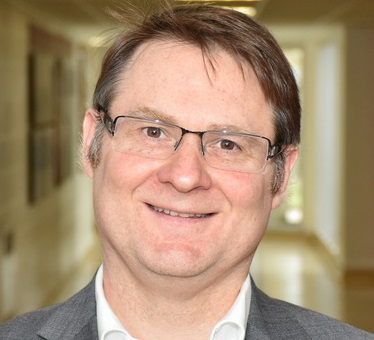When the Global Open Data for Agriculture and Nutrition initiative holds its first summit this month, one speaker will be a New Brunswick entrepreneur who aims to use data analytics to alleviate world hunger.
Chris Baker, CEO of the Saint John data analytics company IPSNP Computing, will outline how his Big Data product can analyze agricultural data in real time to help small farmers improve their output.
Big Data – the real-time analysis of millions of points of data to improve decision-making – is usually thought of as a tool to help large businesses or governments improve productivity. But Baker wants to work with global agencies to use Big Data to alleviate global hunger in the world’s poorest nations.
“If you’re living in a rural setting, the data that’s probably most relevant to you may be agricultural data, and having this accessible to you is really a new avenue,” said Baker, who is also a professor of computer science at University of New Brunswick Saint John. “Having data in a timely manner means that you can make the right decisions at the right time.”
IPSNP (pronounced IP-snip) has developed a system called HYDRA, which can dive into deep pools of digital data, much of it in different formats and languages, to quickly locate information. The company has focused on the pharmaceutical and healthcare segments, and has already done a pilot project with a hospital in Hartford, Conn., and worked with Environment Canada. The company now has a sales representative in the U.K. and is working on leads in Britain.
More recently, Baker has been working with Global Open Data for Agriculture and Nutrition, or GODAN, which came about when the 2012 G8 Summit committed itself to alleviating global hunger. GODAN is supported by 354 partners, from major governments to private businesses. One of the partners is IPSNP.
As well as a doctorate in computer science, Baker has an undergraduate degree in environmental and agricultural studies and understands the challenges faced by farmers.
He has therefore been using HYDRA to tap the vast stores of data held by governments, corporations, not-for-profits and international agencies to improve farm outputs. It will analyze such data as environmental factors, climate, seeds, irrigation patterns, transportation and crops to help farmers improve their strategy.
At the GODAN Summit in New York this month, Baker will show how such analysis can help small farmers who are considering switching crops to produce a better, and more profitable, harvest.
“It helps them to identify the best varieties, the cost of switching to a new variety of crop and the profit margin they can win,” said Baker. “It’s all data-driven. If they want to switch to a new crop, this will help them to rapidly access the data they need.”
On his way to New York, Baker will stop in Boston to give a talk at the Massachusetts Institute of Technology about his technology to a community of experts in data integration.
Baker said he hopes the agricultural sector will become a new business line for IPSNP, and not just because it may lead to profitability.
“I see an opportunity to speak to major agri-chemical companies, government, people in not for profit agencies like the UN,” he said, adding that he wants to work with such groups to combat hunger. “These are the opportunities that await us and we want to be good citizens in this community.”










